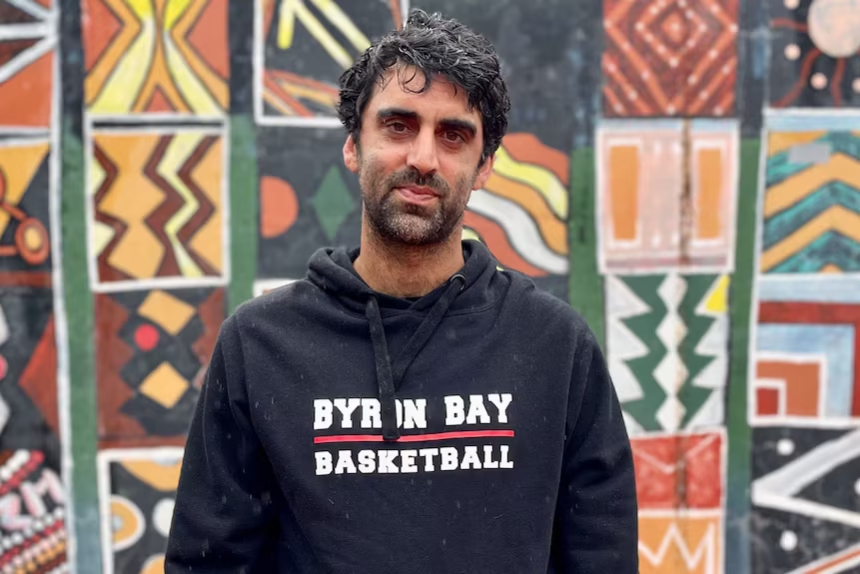Australian Activists Allege Mistreatment by Israeli Authorities During Gaza Flotilla Detention
Australian activists detained while attempting to breach Israel’s naval blockade of Gaza have reported severe mistreatment by Israeli authorities, including physical abuse and harsh prison conditions. These allegations come as part of a broader narrative surrounding the ongoing humanitarian crisis in Gaza and the contentious political climate in the region.
Background on the Flotilla Mission
The Global Sumud Flotilla, which included a diverse group of activists, aimed to deliver humanitarian aid to Gaza, a territory that has faced significant restrictions and blockades for years. The flotilla’s mission is rooted in a long history of international efforts to provide assistance to the Palestinian people, often met with resistance from Israeli authorities. The recent attempt to reach Gaza was intercepted by the Israeli Navy, leading to the detention of the activists.
Reports of Abuse and Harsh Conditions
Recent reports obtained by the Australian Broadcasting Corporation (ABC) reveal disturbing accounts from the detained activists. Australian diplomatic staff in Israel visited the high-security Ketziot prison, located near the Israel-Egypt border, where they documented the experiences of the detainees.
One report detailed the treatment of Surya McEwen, who alleged that upon arrival at Ashdod Port, he was subjected to rough handling by Israeli forces. He claimed that he was slapped, had his arm dislocated, and was physically assaulted during his detention. McEwen also reported being placed in a large cage with approximately 80 other detainees while Israeli National Security Minister Itamar Ben-Gvir visited, during which he was verbally abused.
Another detainee, Juliet Lamont, described her experience as “dystopian.” She alleged that she was sprayed with a water cannon and left in an unventilated area with her hands tied for several hours. Lamont expressed grave concerns about her health, particularly due to an underlying blood pressure condition, and reported feeling dehydrated and weak.
Israeli Authorities Respond
In response to these allegations, the Israeli Foreign Ministry categorically denied any mistreatment of the detainees. Officials stated that all detainees were provided with food, water, and medical care, asserting that their legal rights were upheld. The ministry labeled the activists’ claims as “complete lies,” emphasizing that the detainees had access to bathroom facilities and were treated in accordance with international norms.
The Role of Political Figures
The involvement of Itamar Ben-Gvir, a controversial figure known for his far-right views and previous convictions for inciting violence, adds another layer to this situation. Video footage showed Ben-Gvir visiting the detained activists and labeling them as “terrorists,” further inflaming tensions. His rhetoric reflects a broader narrative within Israeli politics that often frames humanitarian efforts as threats to national security.
Allegations of Psychological Warfare
Reports also surfaced that detainees were subjected to psychological tactics, including being forced to watch videos of Hamas attacks on Israel. This tactic, reminiscent of previous flotilla detentions, raises ethical questions about the treatment of detainees and the use of psychological pressure in detention settings. Activists have described the experience as not only physically taxing but also mentally distressing, as they were made to confront the very violence they sought to address through their humanitarian mission.
International Reactions and Diplomatic Efforts
The Australian government has expressed its concerns regarding the treatment of its citizens. The Department of Foreign Affairs and Trade (DFAT) has reiterated its expectation that all detainees receive humane treatment in line with international standards. This diplomatic engagement underscores the complexities of international relations, particularly when humanitarian efforts intersect with geopolitical tensions.
Historical Context
The situation surrounding the Gaza blockade is not new. Since 2007, Gaza has been under a strict blockade imposed by Israel, which has led to significant humanitarian challenges. The international community has often criticized these measures, arguing that they exacerbate the suffering of civilians. The flotilla missions, which have occurred intermittently over the years, symbolize ongoing efforts to challenge the blockade and draw attention to the humanitarian crisis in Gaza.
Conclusion
The allegations of mistreatment faced by Australian activists detained by Israeli authorities highlight the ongoing complexities of the Israeli-Palestinian conflict. As humanitarian efforts continue to be met with resistance, the international community remains divided on how best to address the situation. The reports of abuse and harsh conditions in detention raise critical questions about human rights and the treatment of activists engaged in peaceful protest. As diplomatic efforts unfold, the plight of those in Gaza remains a pressing concern, underscoring the need for a resolution that prioritizes human dignity and humanitarian access.











